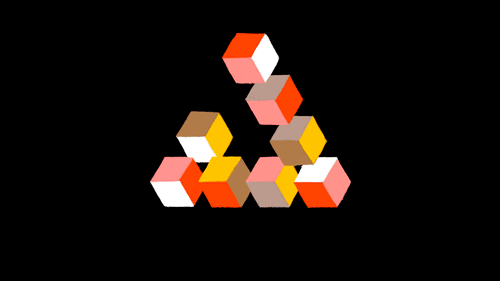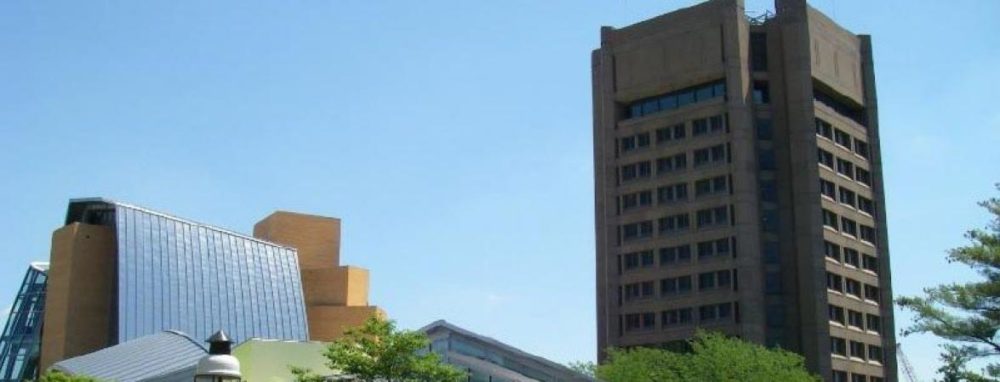Princeton is an excellent place to learn and do applied math – many of professors in many different departments, from engineering to biology to physics, are interested in this area. The strength of the math department and the breadth of possible applications is outstanding. Further, the department is very flexible with undergraduate requirements, so you can usually do anything that you want, as long as it has some mathematical component. The applied math program itself is small, but encourages its students to work with professors outside the core program. If you like math, but also care seriously about some other field, consider being a math major with an applied focus.
Contents
Opportunities
Employment possibilities
Applied math is a very broad notion, and it can be tailored to fit many interests and possible career paths. After graduation you can work in finance, computer science, consulting, engineering, or a number of other quantitative fields – as long as you make sure to take the requisite courses. The combination of rigorous mathematical thinking with an awareness of real-world applications is valuable to potential employers.
If you like math, but also care about some other field, you will likely enjoy applied math. However, you will have the freedom to pursue your curiosity and explore a variety of applications that you may not be familiar with at this point. Have an open mind! Take courses in economics, physics, biology, computer science, neuroscience or any other discipline that you don’t know too much about. Maybe you’ll discover a new passion! In addition, you get to see what kind of math they are using, and focus on that in your math studies. As a personal example, this is how I realized just how important probability and statistics were across many applications, and motivated me to pursue them further.
Work with excellent researchers, in a broad array of fields
As a rule, Princeton faculty members are absolutely brilliant. It is an amazing opportunity to study with them. As a math major with an applied focus, you can do basically anything and everything with a quantitative component. This means that you have access to faculty not just from the math department, but also from many others.
Challenges
Planning coursework
It may not be entirely straightforward to plan your courses. This is in contrast to math, where it is quite clear what to do: take intro 200-level classes, then take the 300’s, and so on. For applied math, the courses are not organized in the same way and in the same place. Many crucial applied math courses are offered in other departments. For instance, optimization and statistics are in ORFE, algorithms is in Computer Science. Further, depending on what application you are interested in, additional advanced courses are required. While at this point you may not know what you are interested in, it is worthwhile to think ahead, and talk to upperclassmen, graduate students and faculty.
Logistics of arranging work with faculty from other departments
It is sometimes challenging to arrange independent work with faculty from other departments. Other departments assign independent work differently, and sometimes earlier than the math department. Therefore, the faculty members you are interested in working with may already have a large number of students. This has happened to me two times, where the faculty members had many other students but were nice enough to agree to also supervise me, though this is possibly a result of good fortune.
Scattered groups sharing your interests
You may find that, while the people and groups sharing your interests exist, they are scattered across several departments. This is important, because you may want to hang out with those people (undergrads and graduate students), attend their seminars, and see what they are they working on to get a better picture of the field. This scattered organization brings an extra level or organizational challenge.
Program in Applied and Computational Math (PACM) Certificate
Princeton offers the PACM certificate program for undergraduates interested in applied math. The certificate, in addition to looking good on a resume, comes with a series of seminars in which students can both present their independent work and hear about the projects undertaken by other certificate students. The certificate has three requirements: coursework, independent work, and certificate seminars. The required coursework is five classes from a wide range of pure and applied math topics, which is fairly flexible. The independent work component consists of a research project with a professor in addition or building off of other independent work requirements, i.e. junior paper and senior thesis. Finally, the certificate seminars are as described above: they entail giving a presentation on your independent work and listening to presentations of others.
For more detailed information on the certificate and on the PACM program, please see their website here.
Fields of Applied Math
Look for applied math courses in APC, CBE, COS, ECO, EEB, ELE, MAE, MAT, MOL, ORF, QCB, PHY etc. depending on your interests. Applied math is such a broad field. On the very applied side, data science and machine learning has become a huge field and comes with large potential to make tons of money. Quantitative biology is also a booming field. On the more theoretical side, there is legit proof based math in COS, ELE, and ORF in areas such as algorithms, information theory, probability, statistics, and optimization. Below is a selection of applied math courses but it is nowhere near complete.
Course list
APC 520/MAT 540 Mathematical Analysis of Massive Data
COS 226 Algorithms and Data Structures
COS 402 Artificial Intelligence
COS 423 Theory of Algorithms
ECO 312 Econometrics: A Mathematical Approach
EEB 414/MOL 414 Genetics of Human Populations
ELE 486 Transmission and Compression of Information
ELE 527 Random Graphs and Networks
ELE 528 Information Theory
ELE 530 Theory of Detection and Estimation
MAE 541 Applied Dynamical Systems
MAT 375 Graph Theory
MAT 377 Combinatorics
MAT 385 Probability Theory
MOL 342 Genetics
MOL 455 / COS 455 Introduction to Genomics and Computational Biology
ORF 309 Probability and Stochastic Processes
ORF 522 Linear Optimization
ORF 523 Conic and Convex Optimization
ORF 524 Statistical Theory and Methods
ORF 525 Generalized Regression Models
ORF 526 Probability Theory
ORF 527 Stochastic Calculus
ORF 565 Empirical Processes and Asymptotic Statistics
PHY 105 Advanced Physics (Mechanics)
PHY 106 Advanced Physics (Electromagnetism)
PHY 205 Classical Mechanics B (“Death Mech”)
PHY 207 Mechanics and Waves
PHY 408 Modern Classical Dynamics
Outlook and Advice
Applied math is really everywhere – consider, for instance, the problem of predicting new data points from past data. This is essentially a mathematical problem, yet it can be used in almost any field. I would encourage students in applied math to take courses in different departments and talk to a professors whose research sounds interesting. I would also add that they shouldn’t be afraid of not knowing enough math or, conversely, working on a project without “enough” math. What really matters is that you can pick up the necessary tools to understand and solve the problem you’re working on – from my perspective, applied math is all about taking problems from other disciplines and using mathematical techniques to solve them.
(Contributors to this page include Jim Tao ’14, Eugene Tang ’16 and Christopher Zhang ’17.)


